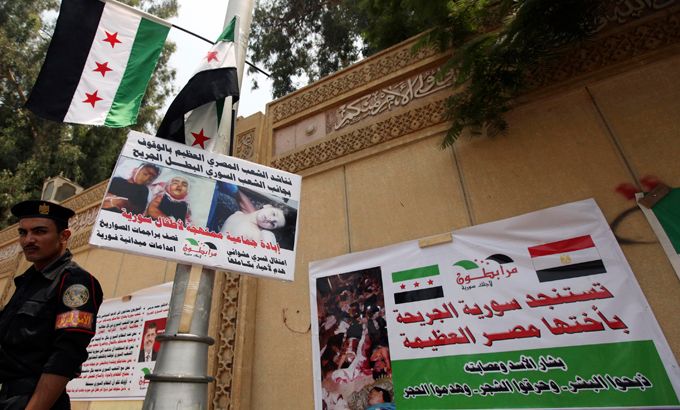
Has the Damascus attack broken al-Assad?
The attack in Damascus has dealt a huge blow to the government, so we ask if the civil war is turning into a revolution.
General Daoud Rajha, the Syrian defence minister, has been killed in an attack on the National Security headquarters.
|
“This is a major breach, maybe it’s not the result of the planning by the Free Syrian Army. It’s high-level, highly-complicated, needs a lot of planning to be effective. We still lack a lot of tactical intelligence … was he a suicide bomber, was it planted, was it an inside coup.” – Elias Hanna, a retired Lebanese Army general |
The attack also killed Assef Shawkat, the Syrian interior minister and President Bashar al-Assad’s brother-in-law, and injured the national security chief.
It was an attack at the heart of the Syrian government – a huge blow to al-Assad regime which is already under immense external and internal pressure.
Following the attack, Adnan Hassan Mahmoud, the Syrian information minister, said the government was prepared to talk.
“I reaffirm to you that we are committed to the political process and to the [Kofi] Annan peace plan and are committed to the fact that the resolution has to be a Syrian one, strictly by Syrian hands and committed to the national dialogue with whoever wants a national dialogue without any pre-conditions or pre-determined agendas.
|
“The psychological effect of this explosion has been the fact that many soldiers and officers have defected and they have realised that this is the real end of the regime .… A revolution is happening, it’s not a real army fighting another real army.” – Bassam Imadi, former Syrian ambassador to Sweden |
“We are committed to meeting and talking to anyone who does not ask for foreign intervention,” the minister said.
Inside Story asks: Will the Damascus attack break or embolden the government? And for how long can Bashar al-Assad remain in control?
Joining the discussion, with presenter Kamahl Santamaria, are guests: Bassam Imadi, a member of the Syrian National Council and former Syrian ambassador to Sweden; Elias Hanna, a retired Lebanese army general and defence analyst; Christopher Swift, a fellow at the Centre for National Security Law at the University of Virginia, and author of the upcoming book The Fighting Vanguard: Local Insurgencies in the Global Jihad.
|
“The symbolism of this particular operation [by the Free Syrian Army] hitting at Assad’s war council in the very core of the security apparatus…will send the sort of message that’s likely to encourage the regime to reinforce its line, not just hold it.” Christopher Swift, a fellow at the University of Virginia |